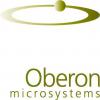If you are interested in strong cryptography on STM32 microcontrollers, as used in the newer Netduinos, you may be interested in our latest Mountaineer Firmware 4.3.1 Beta 3.
This new beta release, which is based on our NETMF for STM32 open source software like the firmware of the Netduino 2 family, contains a new experimental crypto library:
Oberon.NaCl is a light-weight cryptographic library for NETMF-based IoT devices. It is a small and easy-to-use tool box that you can use to build secure communication protocols, secure firmware update mechanisms, etc.
It is based on NaCl, pronounced "salt", a highly regarded suite of cryptographic algorithms designed and implemented by D. Bernstein et. al. It can be implemented efficiently even on single-chip microcontrollers and supports both symmetric and asymmetric cryptography.
A great introduction is given by Marco Poponi here:
http://www.tinyclr.i...1-platform.aspx
Links to examples and additional background are given here:
http://www.mountaine...crypto-library/
We are considering to contribute our code, along with a test suite, as a new core component of NETMF. Under the Apache 2.0 open source license, like the rest of NETMF. This will depend on the community feedback. At the moment, we see Oberon.NaCl as an experimental feature that may or may not find its way into the final release of the Mountaineer firmware.
Microsoft told us that they intend to set up a community process for contributions like this one. Until that process is in place, we use this forum here as a sounding board. Please let us know whether you feel that such a library would add value to NETMF, whether you see any issues with the API, and especially how you would like to use the library.
I�d like to thank Dan Berstein and his team for their impressive work and for making it public domain, Marc for finding and choosing NaCl, Pascal for implementing, testing and documenting our adaptation, Beat for understanding the involved math in-depth and for seeing the optimization potential of an already fast implementation, and Stephan, Etan and Thomas for multiple API and code reviews.
Cuno















